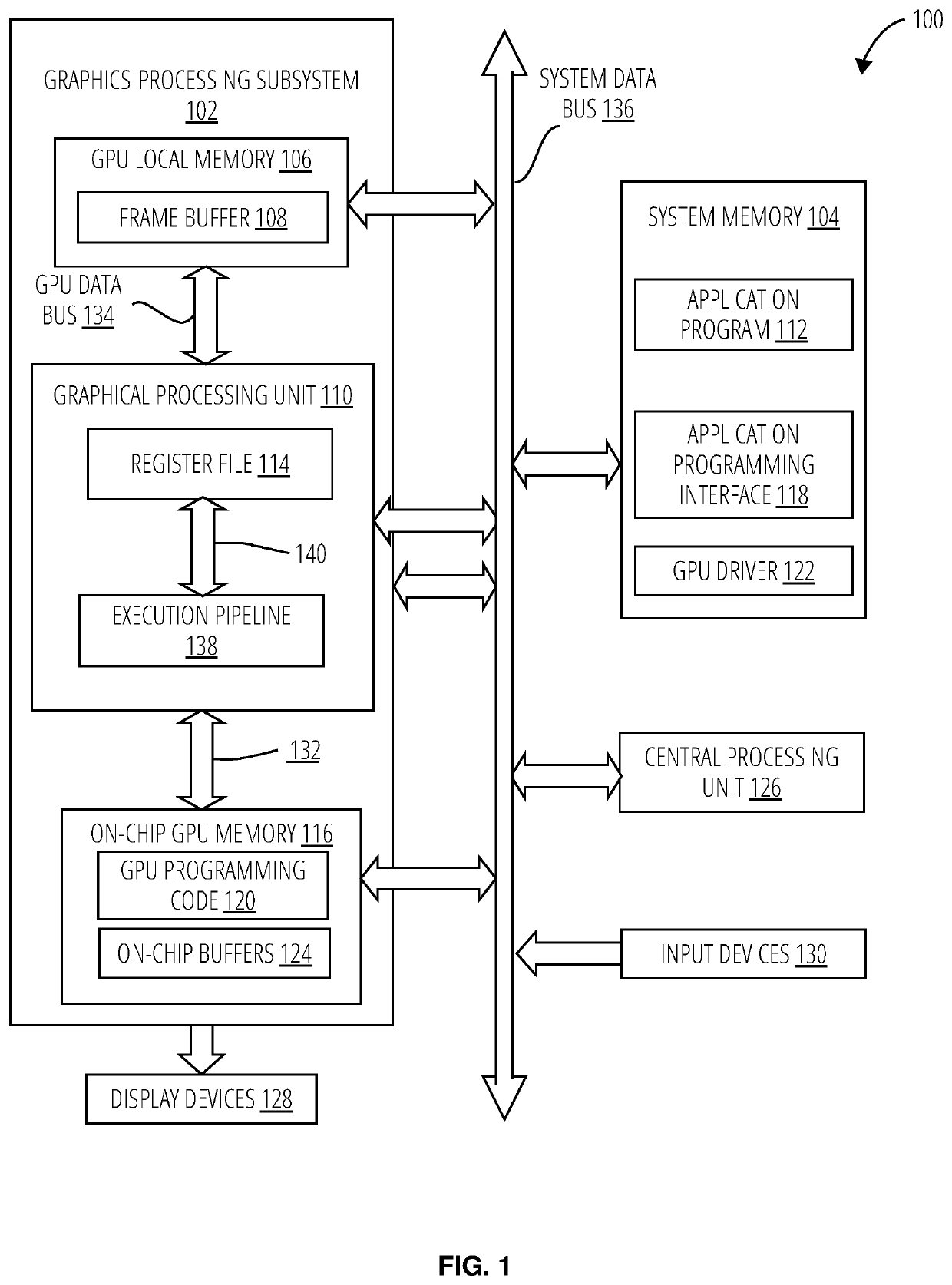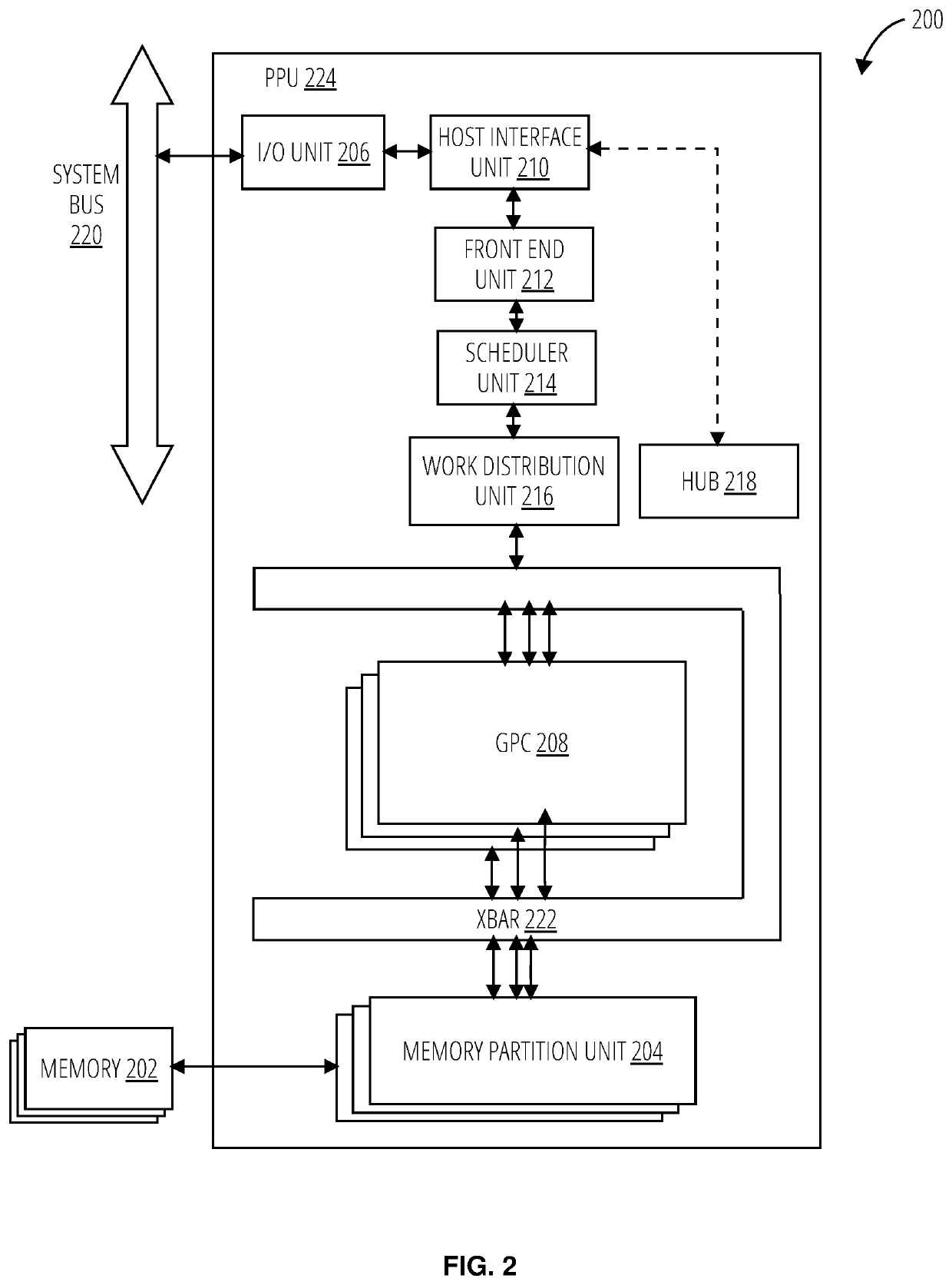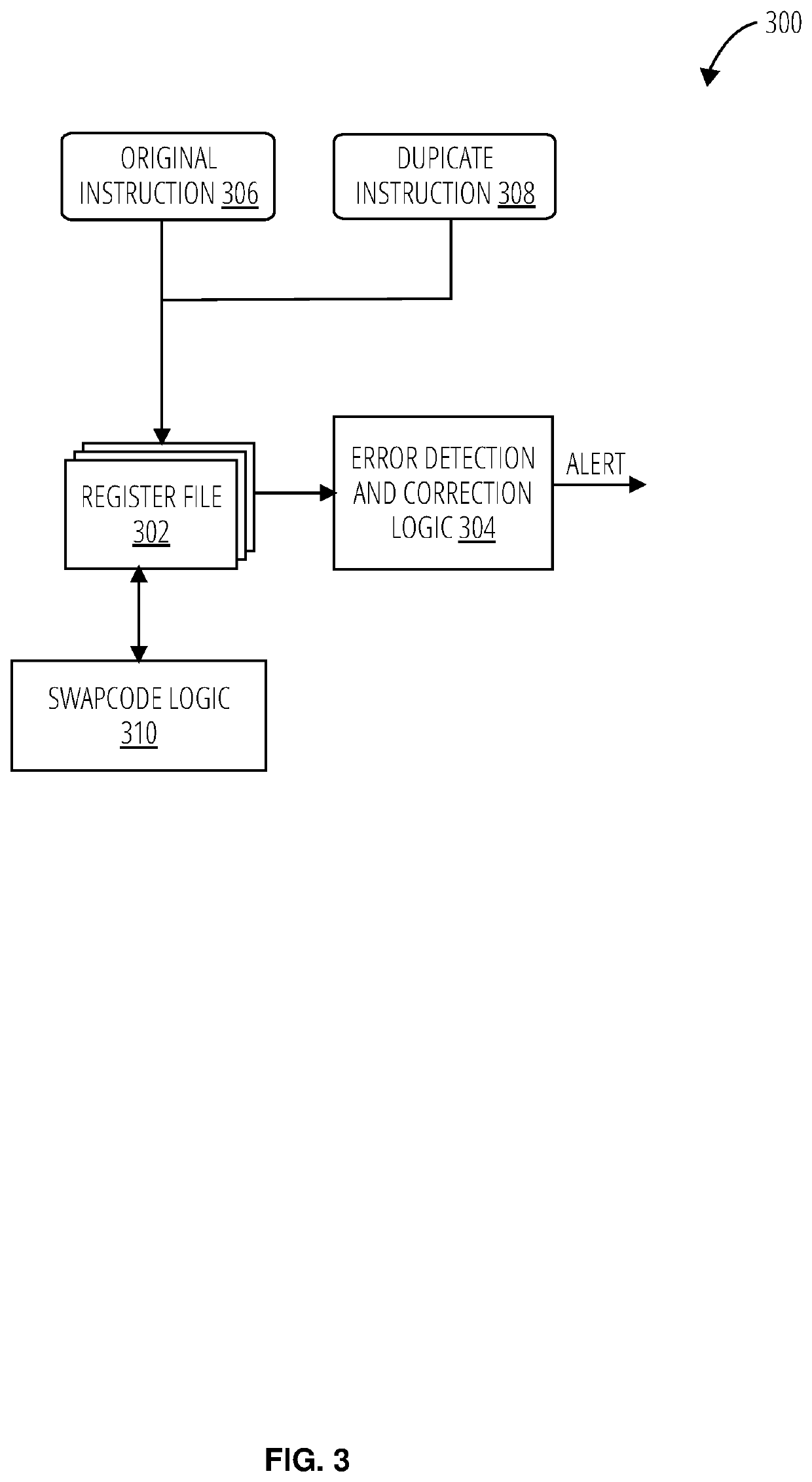System and methods for hardware-software cooperative pipeline error detection
a technology of hardware software and error detection, applied in the field of system and methods for hardwaresoftware cooperative pipeline error detection, can solve the problems of high chip area cost or design complexity, inability to solve errors, and high cost of the chip area, so as to reduce the sources of inefficiency in intra-thread duplication, accelerate intra-thread duplication, avoid the overhead of instruction checking
- Summary
- Abstract
- Description
- Claims
- Application Information
AI Technical Summary
Benefits of technology
Problems solved by technology
Method used
Image
Examples
Embodiment Construction
[0017]Herein, the following acronyms are utilized:
[0018]“ECC” refers to “error correcting codes”;
[0019]“EDC” refers to “error detecting codes”;
[0020]“GPU” refers to “graphics processing unit”;
[0021]“DUE” refers to “detected yet uncorrected error”;
[0022]“SDC” refers to “silent data corruption”;
[0023]“SEC” refers to “single bit error correcting”;
[0024]“DED” refers to “double bit error detecting”;
[0025]“TED” refers to “triple bit error detecting”; and
[0026]“DCE” refers to “detected and corrected error”.
[0027]A system and methods are disclosed to enable register file error detection logic to implicitly check for pipeline errors in addition to storage errors. This may be done by swapping the error check-bits from original and duplicate instruction such that valid-yet-incorrect codewords that are produced by a pipeline error are split and swapped to allow proper detection and diagnosis. By checking for errors with the register detection hardware, the temporal duplication overheads of expl...
PUM
 Login to View More
Login to View More Abstract
Description
Claims
Application Information
 Login to View More
Login to View More - R&D
- Intellectual Property
- Life Sciences
- Materials
- Tech Scout
- Unparalleled Data Quality
- Higher Quality Content
- 60% Fewer Hallucinations
Browse by: Latest US Patents, China's latest patents, Technical Efficacy Thesaurus, Application Domain, Technology Topic, Popular Technical Reports.
© 2025 PatSnap. All rights reserved.Legal|Privacy policy|Modern Slavery Act Transparency Statement|Sitemap|About US| Contact US: help@patsnap.com



